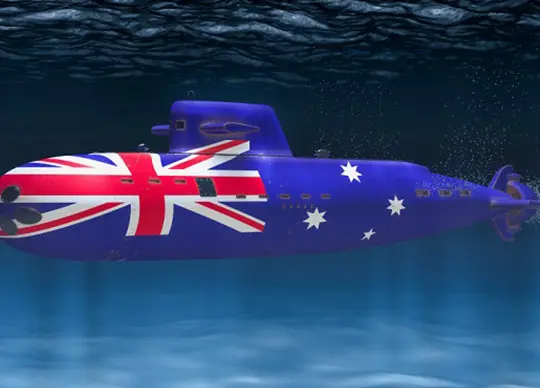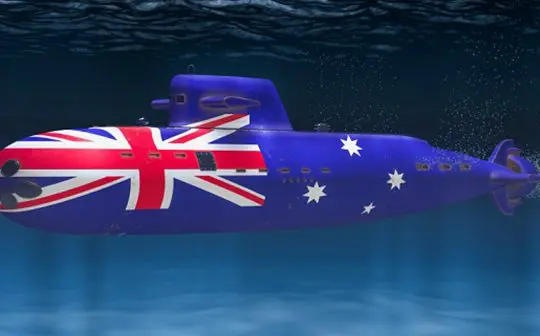
Written by the Independent Tertiary Education Council Australia (ITECA).
The design, acquisition and maintenance of nuclear-powered attack submarines (naval designation SSN) will not just require a new cohort of skilled workers, it will require the nation’s skills training sector to develop unique expertise to deliver specialist training.
That’s the considered view of the Independent Tertiary Education Council Australia (ITECA), the peak body representing independent providers in the skills training, higher education, and international education sectors.
ITECA notes that the capability of the entire skills training sector, including independent Registered Training Organisations (RTOs) and public TAFE colleges, will be required for the three major stages of the SSN program. These stages are building new naval shipyards, acquiring Virginia-class SSNs from America, and finally building the SSN-AUKUS class submarines.
The first stage, naval shipyard construction, is a conventional skills challenge, according to ITECA.
“The Australian Government estimates that some 4,000 workers will be needed simply to design and build the submarine construction yard in Osborne, South Australia. In many respects, ensuring the availability of a skilled workforce to support that aspect of the SSN project is the easiest part,” said Troy Williams, ITECA Chief Executive.
The second stage, developing a workforce to support the Virginia-class SSNs is more challenging, according to ITECA. It will require RTOs to employ trainers and assessors with expertise that the skills training system doesn’t currently have.
“The acquisition of the Virginia-class SSNs will mark a major shift for many independent RTOs. These RTOs will need a new cohort of trainers and assessors who thoroughly understand SSN submarines’ complex systems and components. This is a capability the nation’s skills training system does not presently have,” Mr Williams said.
ITECA notes that the ongoing operational readiness of the SSN fleet will depend on the ability of the nation’s skills training sector to develop a workforce with the requisite maintenance expertise.
“US reports on SSN submarine maintenance delays commonly reference a shortage of workers with the requisite skills and experience. In that context, Australia needs a long-term SSN maintenance workforce strategy that harnesses the capabilities of both independent and public skills training providers. Importantly, the strategy needs to look at developing the skills training sector’s workforce,” Mr Williams said.
The third phase of Australia’s nuclear submarine program to support the design and construction of the SSN-AUKUS submarine fleet will be a game changer for the skills training sector, according to ITECA.
“Around 4,000 to 5,500 shipyard jobs will be required at the peak of the SSN-AUKUS construction program, requiring a workforce with skills not found domestically. Addressing that skills gap will require RTOs to hire trainers and assessors with specialist expertise, and that’s going to be a challenge,” Mr Williams said.
The Australian Government’s SSN program needs to look at the skills training sector’s capabilities, ITECA says.
“The Australian Government is currently preparing a blueprint for the skills training workforce, and this review needs to have scope to consider what specialist trainers and assessors are required to support the SSN program. That’s the advice that ITECA has given the Australian Government,” Mr Williams said.
Government data referenced in the ITECA State Of The Sector report highlights that it is independent RTOs that support more than 87% of the 4.3 million students in skills training, including some 71% of Diploma (and higher) student enrolments, 69% of Certificate IV student enrolments and more than half of all apprentices and trainees.
“Australia’s independent RTOs do the heavy lifting in delivering higher level and complex qualifications in the skills training sector. These providers will be critical to the success of Australia’s SSN capability,” Mr Williams said.





